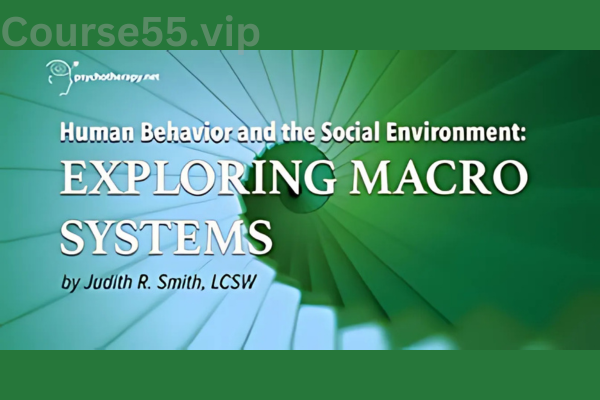-
×
 Rewire the Anxious Brain: Neuroscience-Informed Treatment of Anxiety, Panic and Worry By Marwa Azab - PESI
1 × $23.10
Rewire the Anxious Brain: Neuroscience-Informed Treatment of Anxiety, Panic and Worry By Marwa Azab - PESI
1 × $23.10 -
×
 Barb Stepp’s NLP Master Practitioner By Barbara Stepp
1 × $23.10
Barb Stepp’s NLP Master Practitioner By Barbara Stepp
1 × $23.10 -
×
 Self-Regulation & Executive Functioning in Children and Adolescents: Visual Strategies and Hands-on Techniques to Provide Structure, Predictability, and Routines By Kathy Morris
1 × $23.10
Self-Regulation & Executive Functioning in Children and Adolescents: Visual Strategies and Hands-on Techniques to Provide Structure, Predictability, and Routines By Kathy Morris
1 × $23.10 -
×
 Ultimate Guide Technical Trading
1 × $23.10
Ultimate Guide Technical Trading
1 × $23.10 -
×
 Utah Legal and Ethical Issues for Mental Health Clinicians By Susan Lewis - PESI
1 × $23.10
Utah Legal and Ethical Issues for Mental Health Clinicians By Susan Lewis - PESI
1 × $23.10 -
×
 PTSD in Veterans: Impact of PTSD on Military Personnel and War Veterans and Their Families By Michael Gatson - PESI
1 × $23.10
PTSD in Veterans: Impact of PTSD on Military Personnel and War Veterans and Their Families By Michael Gatson - PESI
1 × $23.10 -
×
 Carl Bretzke Bundle
1 × $46.00
Carl Bretzke Bundle
1 × $46.00 -
×
 Science of Stretching Program By Yogabody
1 × $23.10
Science of Stretching Program By Yogabody
1 × $23.10 -
×
 The Complete Crowdfunding PR System By Salvador Briggman - CrowdCrux
1 × $23.10
The Complete Crowdfunding PR System By Salvador Briggman - CrowdCrux
1 × $23.10 -
×
 Med-Surg Certification - CMSRN ® Exam Prep Course by Cyndi Zarbano
1 × $15.40
Med-Surg Certification - CMSRN ® Exam Prep Course by Cyndi Zarbano
1 × $15.40 -
×
 Forensic Nursing: The Harsh Realities in Every Patient Care Setting By Pamela Tabor - PESI
1 × $23.10
Forensic Nursing: The Harsh Realities in Every Patient Care Setting By Pamela Tabor - PESI
1 × $23.10 -
×
 Joint Venture Secrets by Jeff Paul & Dan Kennedy
1 × $15.40
Joint Venture Secrets by Jeff Paul & Dan Kennedy
1 × $15.40 -
×
 What to Do in the First 90 Days of Your New Job
1 × $23.10
What to Do in the First 90 Days of Your New Job
1 × $23.10 -
×
 Ethics & Cultural Competency: 1-Day Intensive Certificate By Frances Patterson - PESI
1 × $23.10
Ethics & Cultural Competency: 1-Day Intensive Certificate By Frances Patterson - PESI
1 × $23.10 -
×
 Trauma-Informed Yoga for Children and Adolescents: Mind-Body Sequencing for ADHD, Anxiety and Post-Traumatic Stress By Kathy Flaminio
1 × $23.10
Trauma-Informed Yoga for Children and Adolescents: Mind-Body Sequencing for ADHD, Anxiety and Post-Traumatic Stress By Kathy Flaminio
1 × $23.10 -
×
 Orchestral Music Mixing By Joël Dollié
1 × $23.10
Orchestral Music Mixing By Joël Dollié
1 × $23.10 -
×
 Perfect Weight Forever By Marisa Peer
1 × $23.10
Perfect Weight Forever By Marisa Peer
1 × $23.10 -
×
 The Marriage Reset: From Obligation To Adventure By Dani Johnson
1 × $31.00
The Marriage Reset: From Obligation To Adventure By Dani Johnson
1 × $31.00 -
×
 SEO Operating System By James Ewen
1 × $15.00
SEO Operating System By James Ewen
1 × $15.00 -
×
 Intermediate To Advanced Breath-Control Course By Simon Borg-Olivier
1 × $39.00
Intermediate To Advanced Breath-Control Course By Simon Borg-Olivier
1 × $39.00 -
×
 Legal and Ethical Issues in Behavioral Health in South Carolina By Lois Fenner - PESI
1 × $23.10
Legal and Ethical Issues in Behavioral Health in South Carolina By Lois Fenner - PESI
1 × $23.10 -
×
 Essential LUTs By EZCO
1 × $7.70
Essential LUTs By EZCO
1 × $7.70 -
×
 Writing Email Copy for B2B Companies By AWAI
1 × $23.10
Writing Email Copy for B2B Companies By AWAI
1 × $23.10 -
×
 Couples on the Brink: When Is Enough Enough? By Terry Real - PESI
1 × $23.10
Couples on the Brink: When Is Enough Enough? By Terry Real - PESI
1 × $23.10 -
×
 Acceptance and Commitment Therapy (ACT) Made Easy: Innovative Techniques for Depression, Anxiety, Trauma & Personality Disorders By Douglas Fogel - PESI
1 × $23.10
Acceptance and Commitment Therapy (ACT) Made Easy: Innovative Techniques for Depression, Anxiety, Trauma & Personality Disorders By Douglas Fogel - PESI
1 × $23.10
Exploring Macro Systems With Judith R. Smith
$39.00 Original price was: $39.00.$7.70Current price is: $7.70.
Exploring Macro Systems with Judith R. Smith – Digital Download!

Exploring Macro Systems With Judith R. Smith
Overview

Unveiling the Role of Macro Systems in Social Work with Judith R. Smith
Judith R. Smith’s presentation, Exploring Macro Systems, offers an in-depth exploration into the broader frameworks that shape human behavior and social dynamics. With her extensive expertise as a social work professor, Smith explains how macro systems—such as economic, political, and educational structures—play a pivotal role in influencing the lives of individuals and communities. In this 46-minute session, viewers are not only introduced to social systems theory but also shown how these systems directly impact people’s lives. Through real-life case studies and practical examples, Smith uncovers the web of interconnectedness between societal structures and the daily experiences of individuals, making this presentation a valuable resource for both students and professionals in social work.
Understanding Macro Systems: A Foundational Approach for Social Work
The Core of Macro Systems
To truly grasp the significance of macro systems, it is crucial to recognize their complex and multi-layered nature. Macro systems involve vast social structures—such as policies, cultural norms, and economic systems—that directly shape individual and community experiences. Smith emphasizes that these systems should not be seen merely as theoretical frameworks, but as dynamic, real-world entities that exert measurable influences on people’s lives. For example, the economic system can directly impact individuals’ access to essential resources, which in turn affects their quality of life. Through the lens of social justice, Smith explores how systemic inequalities—such as those within economic or political structures—disproportionately affect marginalized communities, perpetuating cycles of disadvantage.
Key Components of Macro Systems:
-
Economic Forces: Job availability and financial resources.
-
Political Impact: Legislation and policies influencing community services.
-
Educational Equity: Access to quality educational resources.
-
Cultural Beliefs: Societal values that shape expectations and behaviors.
By breaking down macro systems into these core components, Smith helps viewers see how each one is interwoven, influencing and reinforcing the others. This interconnectedness illustrates how changes in one area—be it policy, economics, or culture—can create a ripple effect that influences individuals and communities far beyond the immediate context.
The Influence of Macro Systems on Social Work Practice
Smith asserts that understanding the scope of macro systems is fundamental for social workers. By applying a “person in environment” framework, social workers can better address the broader systemic factors that shape their clients’ lives. Recognizing the extensive forces at play helps practitioners advocate for change that addresses the root causes of social problems, rather than simply providing temporary solutions.
For example, Smith references the New York University Settlement House, a historical social service agency that exemplifies how macro systems can be leveraged to support individuals. This institution’s work shows how collaboration between social services and societal frameworks can effectively meet community needs.
Key Services Provided by Settlement Houses:
-
Nutrition Assistance: Alleviating hunger and tackling food deserts.
-
Educational Support: Providing tutoring and mentoring for all age groups.
-
Healthcare Access: Basic health screenings and referrals to specialists.
-
Employment Services: Job search and placement support.
Through these programs, settlement houses act as powerful catalysts for community resilience, demonstrating how well-functioning macro systems contribute to enhanced individual well-being.
Applying Theory to Practice: Case Studies in Macro Systems
Real-World Examples of Macro Systems in Action
Judith R. Smith brings theory to life by integrating case studies and interviews with professionals in the social work field. These narratives vividly illustrate how macro systems play a critical role in shaping service delivery and outcomes. Each story underscores the importance of understanding the human context behind the statistics, demonstrating the need for empathy in navigating complex systems.
One case study shared in the video highlights a family facing eviction after a breadwinner loses their job. The social worker involved not only helped the family secure necessary resources but also advocated for policy changes that would improve housing security. This example underscores the challenges that individuals face when trying to navigate the bureaucratic complexities of macro systems and the importance of policy reform to ensure lasting solutions.
Key Insights from Case Studies:
-
The value of collaboration between social agencies and local resources.
-
The necessity of policy advocacy to protect vulnerable communities.
-
The power of education in fostering awareness about systemic issues.
These stories emphasize the interconnectedness between personal circumstances and larger systemic influences, urging social workers to adopt a holistic approach in their practice.
Macro Systems in Education and Social Work
Judith R. Smith advocates for integrating macro systems theory into social work education. By embedding this understanding in training, future social workers are better equipped to recognize systemic inequalities and develop strategies for overcoming barriers in service delivery. Social work education plays a critical role in shaping professionals who not only address individual needs but also champion systemic reforms for broader social change.
Benefits of Integrating Macro Systems into Social Work Education:
-
Fosters critical thinking around social issues and systemic structures.
-
Encourages a holistic view of client circumstances.
-
Cultivates advocacy skills for influencing policy and enacting change.
-
Prepares students for interdisciplinary collaboration to tackle complex challenges.
By promoting this perspective within educational frameworks, Smith pushes for a more integrative, empathetic approach to social work that addresses the larger systemic context in which individuals exist.
Concluding Thoughts: A Call to Action for Social Work and Social Change
The video Exploring Macro Systems featuring Judith R. Smith is not just an academic exploration of social systems theory—it’s a rallying cry for action. By highlighting the profound effects of macro systems on individuals and communities, Smith provides a valuable framework for social workers to understand the systemic forces shaping social behavior. As professionals and educators embrace this holistic perspective, they are better prepared to address human behavior’s complexities and advocate for meaningful change.
This exploration of macro systems encourages social workers to consider not only the immediate needs of their clients but also the broader societal context in which these needs arise. Judith R. Smith’s work serves as an ongoing reminder of the necessity of examining the larger forces at play and working toward a more just and equitable society.
Frequently Asked Questions:
Business Model Innovation: We operate a group buying strategy, allowing participants to share costs and access popular courses at reduced prices. This model benefits individuals with limited financial resources, despite concerns from content creators about distribution methods.
Legal Considerations: The legality of our operations involves complex issues. Although we don’t have explicit permission from course creators to resell their content, there are no specific resale restrictions stated at the time of purchase. This ambiguity creates an opportunity for us to provide affordable educational resources.
Quality Control: We ensure that all course materials purchased are identical to those offered directly by the creators. However, it’s important to understand that we are not official providers. As such, our offerings do not include:
– Live coaching calls or sessions with the course author.
– Access to exclusive author-controlled groups or portals.
– Membership in private forums.
– Direct email support from the author or their team.
We aim to reduce the cost barrier in education by offering these courses independently, without the premium services available through official channels. We appreciate your understanding of our unique approach.
Be the first to review “Exploring Macro Systems With Judith R. Smith” Cancel reply
You must be logged in to post a review.












Reviews
There are no reviews yet.